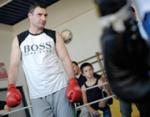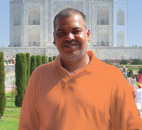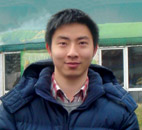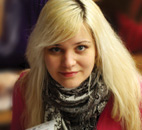Fighting for Ukraine. Interview with Klitschko
Boxing brothers Vitaliy and Volodymyr Klitschko are perhaps the most famous Ukrainians in the world. Beyond the boxing ring both Klitschkos are loved in their motherland as charming and educated, erudite and intelligent ambassadors who combine sporting excellence with a strong pro democracy stance and support for civil society. We decided to ask Vitaliy Klitschko how he succeeds in combining all his interests and how he sees the future of Ukraine.
– Vitaliy, you are well known all over the world. Why do you choose to live in Ukraine?
– In Kyiv I feel at home. I can see myself and my dreams fulfilled here, plus I believe I can be of benefit for the young state Ukraine. My country has chosen the European path of development. We want to build a democratic state. I believe that the energy and experience which I have can be useful to my country. Ukraine has enormous potential. Now a great deal depends on the young generation, on those people who love Ukraine, believe in it, and connect their future with it.
– After retiring from the ring you have moved into politics. How successful has the transition been?
– It has not been simple. The point is that Ukrainian politics is passing through a formative period and we are working to build a truly open, civilized society. At the moment we are witnessing the very first steps, and they are always the most difficult. Politics is a tricky business but I never shy away from a challenge.
– You have recently announced a boxing comeback. Is it difficult to combine your political career and your sporting commitments?
– I am currently a deputy of the Kyiv City Council, and like all city council deputies I work on a voluntary basis. In other words I do not receive a salary, but like other deputies have a separate working place. I am continuing to focus on my boxing, training every day. Bouts are relatively infrequent, occurring just one or two times per year, so there is enough time between them to concentrate on socially important affairs. One does not interfere with the other, and I do not see big problems for me in combining them both.
– You socialize with a lot with people of different countries. How familiar are they with Ukraine?
– Unfortunately, people know very little about Ukraine. Certainly, the Orange Revolution had an enormous resonance around the world, and is a very positive image for all Ukrainians. In spite of all the tension and confrontation within our society at the time the situation was resolved in a peaceful way, without any bloodshed and in favour of the people. Many foreigners also know a lot about Chornobyl, but this isn’t our best promotion. I would rather emphasize the very beautiful nature of the southern cost of Crimea, the many wonderful resorts in the Carpathians, our unique mineral waters and Kyiv itself, this majestic and precious gem which is one of the oldest cities of Europe. We have huge tourism potential as our infrastructure develops, and the amount of tourists coming to Ukraine will only increase over the course of time. People coming here for the first time tend to note the beauty of the country and the hospitality of our people. One of my first teenage jobs was as a tour guide, leading groups of children from different cities around Kyiv. Today I often invite my foreign friends to visit Kyiv.
– And which celebrities have you welcomed to Kyiv?
– I have accompanied Mila Yovovich, Sergiy Sikorsky, Mike Tyson and many other global stars. There was one interesting moment with Mike Tyson during his visit to one of the churches within the Kyivo-Pecherska Lavra. I noticed that Mike was barefoot and asked, “Mike, where are your shoes?” Only then I realized that he had taken his shoes off by the entrance to the church in line with Moslem custom. Afterwards, I explained to him that in accordance with Orthodox tradition men must be bare-headed when entering church but that it is not necessary to take off one’s shoes.
– You are reputed to be very generous. Which charities do you support?
– We are the ambassadors of UNESCO for their “Education for children in need” programme, which is international in scope. We raise funds to pay for educational programmes in a wide range of developing countries in order to enable poor children to find a place for themselves in society. Good education is the key to working out the problems which face all disadvantaged children.




